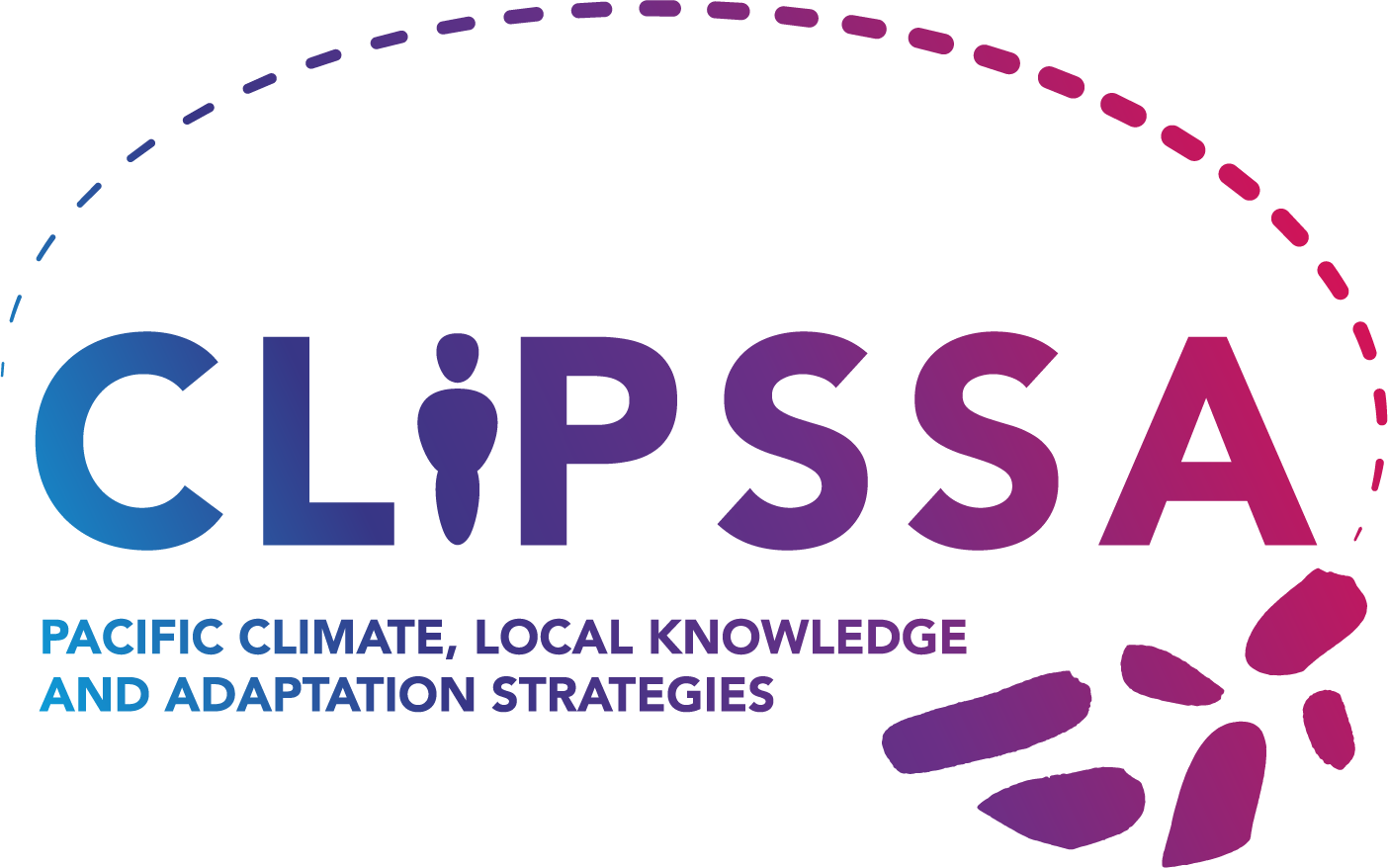Météo-France and IRD include in their contract of objectives the will to provide French territories with scientific knowledge leading to climate services that can be used by public authorities, i.e. on spatial scales relevant to the islands. Collaboration is set up through a multi-laboratory (UMR ENTROPIE, ESPACE-DEV, CNRM, CREDO) and multi-institute (IRD, AFD, MF-DCSC, DIRNC and DIRPF) team, Ifremer, universities (UPF, UNC), the German Institute (Warmenunde Institut) and the Oceanian Regional Program for the Environment (PROE/SPREP). The CLIPSSA project brings together biophysicists, oceanographers, meteorologists, geographers, and anthropologists (more than 25 scientists and collaborators involved) from the Indo-Pacific region. The different research teams of the CLIPSSA project work together to ensure an efficient and effective synergy of scientific work.
Climate simulations
The project reflects the desire of the New Caledonia and Wallis and Futuna Interregional Direction and the French Polynesia Interregional Direction of Météo-France to deepen their knowledge of past and future climate change to develop, under the aegis of the Climatology and Climate Services Direction of Météo-France (DCSC-MF) in Metropolitan France. It will also consolidate partnerships with French scientific organisations in the South Pacific and promote the know-how of the Centre National de Recherches Météorologiques – Modélisation du Système Climatique régional (CNRM) in the Indo-Pacific region. The research project benefits from the technical expertise of the CNRM’s MOSCA team (C. Caillaud, A. Alias) to set up an AROME configuration in climate mode and from the computing resources of Météo-France to carry out simulations of the present and future climate of this zone.
The FCPLR thesis in French Polynesia feeds the collaborations between Météo-France New Caledonia, French Polynesia, IRD, and the University of French Polynesia (Marania Hopuare, Pascal Ortega). A long-standing collaboration exists between these researchers, who have worked mainly on rainfall variability on the Pacific islands through successive projects (VARAPP, PLUVAR) and now PACRES on renewable energy, financed by the Pacific Fund.
For more than three years, the French Polynesia Interregional Direction of Météo-France has been collaborating with Dr Keitapu Maamaatuaiahutapu, an oceanographer in the GEPASUD laboratory of the UPF and co-author of the latest version of the climatological atlas of French Polynesia. This collaboration has enabled us to supervise a research topic on the impact of climate change on extreme swells, to improve our knowledge of atmospheric dynamics and its variability on different time scales, which will help validate climate models, and to actively participate in the SPREP-sponsored Pacific Climate Change Monitor project, which aims to document long-term climate change in the tropical Pacific basin.
The simulations carried out with AROME within the framework of the FCPLR and the resulting impact models financed by the project will feed the climate services offered by Météo-France at the national level (DRIAS, ClimatHD) or locally in the project territories. Coordination with the DCSC at Météo-France and the other Overseas Directions will be sought when setting up the AROME simulations (period, scenario, variables). Data availability will be shared in a regional effort to develop collaboration with the regional SPREP organisation.
At the regional level, Australia (CSIRO, Department of Foreign Affairs and Trade, BoM, USP, etc.) is also developing a research effort on climate regionalisation in the PICTS (Pacific Island Countries and Territories) of the South Pacific. Collaborations have already been established for a concerted effort. This innovative partnership dynamic enables the networking of research actors at the South Pacific basin’s international, regional and local levels.
© Bruno Marty

Local knowledge and transmission methods
Partnerships are planned with teams from other research organisations that are members of the Consortium for Research, Higher Education and Innovation in New Caledonia (CRESICA), such as the Caledonian Agronomic Institute (IAC) and the Centre for International Cooperation in Agricultural Research for Development (CIRAD). Other partnerships are envisaged on a local and regional scale with administrations (such as the Ministry of Education and Training in Vanuatu) and organisations working on research themes and the collection of knowledge, such as the Agence de Développement de la Culture Kanak (ADCK) in New Caledonia, the CRIOBE and the Rāhui Center in French Polynesia, as well as the Vanuatu Cultural Centre, the Vanuatu Kaljoral Senta (VKS). These exchanges will provide food for thought regarding the methodological aspects of knowledge gathering and the sharing of collected data.
Public policies
This project is in line with territorial public policies whose ultimate objective is to federate the efforts of the different stakeholders for an integrated management approach (adaptive and mitigation) at the appropriate island scales and to increase the knowledge capacities of the climate future and its impacts on key sectors. It aims to contribute to improving and implementing several sectoral policies (climate, territorial integration and regional cooperation) through its interdisciplinary, intersectoral and inclusive nature. It aims to provide integrated knowledge that feeds ongoing projects and initiatives and makes it possible to become aware of the relationships that link them in activities, territories and actors.
Finally, this regional project with the French Pacific territories and Vanuatu, New Caledonia’s immediate neighbour and a long-standing partner of AFD, will strengthen the regional cooperation links that already exist in other areas such as education, health, culture and maritime surveillance with the New Caledonian and French governments.
Contribution to the Sustainable Development Goals (SDGs/UN)

